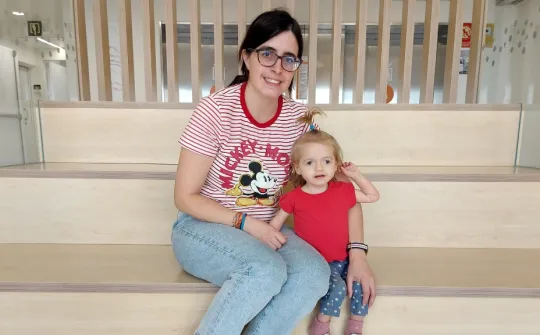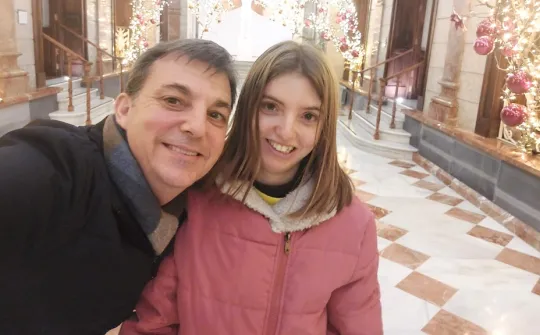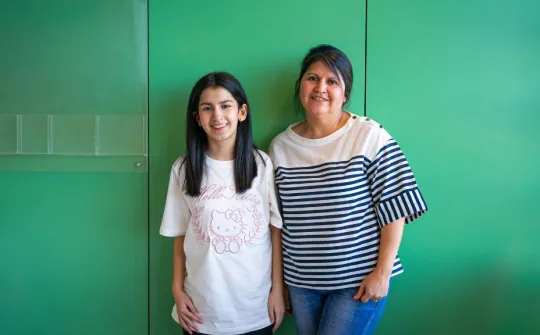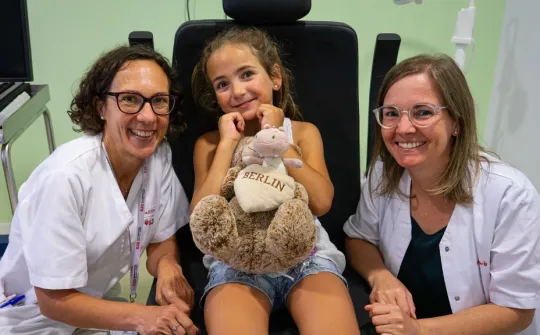‘Having a diagnosis is always a good thing because we can opt for treatments that target our daughter's specific difficulties’
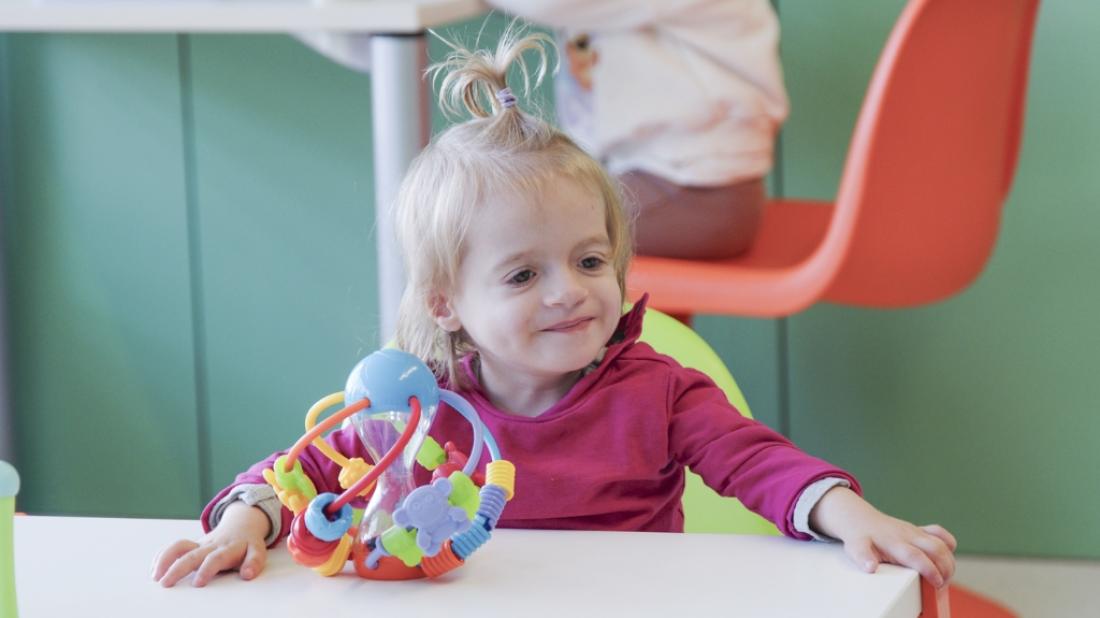
Lia, Sofía, César, Umar and Ali are five of the six patients who, after years spent waiting for a diagnosis, have finally been able to put a name to their disease thanks to the professionals that took part in the first Únicas Hackathon.
This October, the first Ibero-American Únicas Hackathon took place in Murcia. More than 140 professionals from several fields spent 48 hours working towards putting a name to the diseases of 12 different pediatric patients with an undiagnosed rare disease. Although diagnosis rates at these kinds of events tend to be around 25%, in this case, the figure rose to 50%, meaning six patients and their families finally received a diagnosis.
Lia, an almost three-year-old young girl with a rare disease, is one of the patients from the SJD Barcelona Children’s Hospital who obtained a diagnosis from this ‘hackathon’. ‘After the event, Dr Dídac Casas called us to schedule us in and tell us the results,’ explains Laura, the girl’s mother. ‘The fact that Lia was one of the diagnosed cases was a surprise, because we knew it was something difficult to find out, but we were so happy.’
Lia has a genetic mutation in the RYBP gene, which causes a global developmental delay. Laura explains that, thankfully, it is not a neurodegenerative disease and does not carry a short life expectancy. ‘As parents, that aspect really concerned us,’ she stresses. In addition, it is a ‘de novo’ mutation, meaning neither of Lia's parents is a carrier of the mutation and, as a result, their other daughter cannot be a carrier either.
‘Having a diagnosis is always a good thing because we can be sure that the treatments we are choosing are the ones that best target the difficulties that Lia has, which are mainly to do with her motor skills and her speech,’ confirms Laura. The family feels it is important to find other cases like Lia’s and compare treatment approaches. However, there are very few patients in the world with this same mutation.
After three years of waiting, Laura finally has her answers thanks to the ‘hackathon’ and asks those families who have not yet received a diagnosis to not give up hope. ‘Thankfully there are many more professionals working hard to get our children a diagnosis as soon as possible,’ she concludes.
Waiting more than 19 years for a diagnosis
Sofía has spent the last 19 years going from appointment to appointment, never being able to put a name to the disease that leaves her 85% disabled. All this time, professionals working at the Virgen de la Arrixaca Hospital in Murcia have been monitoring her case and, given the difficulties she has had in being diagnosed, they nominated her case for the Únicas Hackathon. ‘We received some exciting news – we have a genetic diagnosis for Sofía. It’s a mutation in the PRTM9 gene which her mother and I both carry’, explains Juan Antonio, Sofía’s father.
The family notes that, as well as the diagnosis, they are waiting on word from other publications that have identified 16 cases just like Sofía’s. Juan Antonio confirms: ‘This will definitely help us find out about future treatments.’
The father expressed his gratitude to Dr Ballesta, the family's referring geneticist, and to Dr Encarna Guillén, a leading figure in genetic research, as well as to all of the professionals involved in the Únicas Hackathon. ‘I hope they fund more initiatives like this one that can give families their hope back,’ he concludes.
Two brothers treated at the SJD Barcelona Children's Hospital
Umar and his brother Ali, both patients at the SJD Barcelona Children's Hospital, also received a diagnosis as a result of the Únicas Hackathon. Their parents finally know that the boys have two different rare diseases: Umar has a mutation in the ZNF699 gene, whereas Ali has a mutation in the ZNF335 gene. Both mutations cause the boys to be significantly disabled. At 13 years old, Ali cannot speak, feed himself or walk. His younger brother, Umar, barely two years old, also has some difficulties.
Their parents are hopeful that Umar's disease is not to the same severe extent as his brother. ‘Umar is getting better every day. What we would love most is to be able to play with our son like any other mother or father can,’ affirms the family.
The first diagnosis at the ‘hackathon’
César, also from Murcia, has been subject to all kinds of genetic tests throughout his 16 years in the hopes of finding answers to his rare disease. While undiagnosed, medical professionals have tried to find treatments that could slow degeneration in his body, particularly in his spine. At the Únicas Hackathon, researchers compared genetic variants with a recent 2025 case that was similar to César's. They found a similar clinical picture, allowing them to figure out that César has Lenz-Majewski syndrome.
César’s mother Reina celebrates the finding: ‘Our entire family has been waiting for this moment. As a mother, I am so overwhelmed by all of the professionals from so many fields that have worked on my son's case in particular.’
